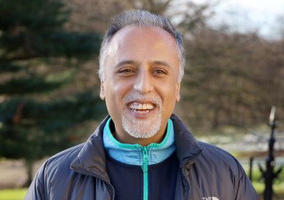A growing number of charities have produced equality, diversity and inclusion (EDI) strategies in an effort to address discrimination within their organisation, but some in the sector have questioned their effectiveness.
At an event last month, charity sector consultant Martha Awojobi said EDI initiatives were often a “waste of money” and can often whitewash true anti-racist work.
Meanwhile, RSPCA chief executive Chris Sherwood said his charity planned to embed EDI across its functions rather than produce a standalone strategy and Touchstone chief executive Arfan Hanif said his organisation did not need one as it “lives it” instead.
We asked more charities what they thought, and some offered differing opinions on how effective they think EDI strategies are.
Guide Dogs: ‘EDI strategies help to reduce siloed working’
Sight loss charity Guide Dogs said an EDI strategy helps reduce siloed working on the issues and encourages senior leaders to take accountability for making an organisation more equitable.
A spokesperson for the charity said: “An EDI strategy is one component of a range of measures needed to ensure equity and inclusion in an organisation.
“An effective EDI strategy gets under the skin of an organisation to find out what works; what needs to be improved and truly puts people with lived experience, minority groups and their allies at the heart of it. It’s important to ensure these voices are heard and not overshadowed by positions of power or privilege.
“By hearing what is important to the communities you serve and seek to serve, you are better placed to create a culture of inclusivity, accessibility and belonging. Your strategy then needs to set out a realistic roadmap to make change happen.
“It’s also important to remember that a strategy is ever-evolving and progress does not happen overnight. Some solutions will have a short-term impact, others will take longer to embed but tackling challenges together in one strategy helps to reduce siloed working; encourages people across the organisation to buy into it and inspires senior leaders to take accountability and drive change from the front.”
Bond: ‘Anti-racism must be at the heart of EDI’
Lena Bheeroo, engagement and equity manager at Bond, named by Awojobi as an organisation with a good EDI strategy, told Civil Society News that some charities mistakenly think EDI and anti-racism are the same thing.
“EDI will only ever be meaningful if it goes hand-in-hand with anti-racism,” she said.
“Without anti-racism being at the heart of EDI explicitly, EDI ends up being a performative box-ticking exercise. Uncomfortable conversations that draw on self-reflection are necessary to identify how racism manifests in the organisation.
“This starts with acknowledging that the system we work in is already racially biased, before making clear decisions and creating a plan of action that is public and can be regularly updated to track progress.
“Leaders are responsible for modelling this change in behaviour and demonstrating that they’re committed to creating spaces where challenge is welcomed, and any harm being done to Black people and people of colour can be properly addressed.”
Bond is hosting a summit for non-governmental organisations next month on this topic. It will provide workshops on the topics of racial equity in the workforce and decolonising economic development.
Turn2us: ‘A danger that EDI camouflages fundamental change’
Thomas Lawson, chief executive of poverty charity Turn2us, said he agreed with Awojobi's view that EDI work itself does not do enough in tackling anti-racism.
“The sector needs to work further and faster to tackle structural racism and there is a real danger that EDI work camouflages the need to implement fundamental change,” he said.
“At Turn2us, we learned that our heritage grants were harmful to people of colour and took the decision to stop that grant programme and begin the journey of re-design and change.
“We are working with people facing daily financial hardship to actively challenge racial discrimination inside our organisation and build an inclusive environment for everyone.
“We will continue to hold ourselves to account and change our own policies and practices that are damaging people of colour, including our staff and people who turn to us for support.”
Touchstone: ‘EDI strategies are more about massaging egos’
Arfan Hanif, chief executive of mental health charity Touchstone, said despite how well-intentioned EDI strategies are, they can often be a waste of funding.
He said: “Often EDI strategies no matter how well-intentioned are a waste of time and money, if not aligned to resource allocation and planning. These strategies are more about massaging egos, PR exercises and dealing with a sense of white privileged guilt and very rarely about equitable outcomes.
“Many organisations who promote such strategies are not representative of the communities they serve. For Touchstone and I, we can never have equity without fair representation. Let's have less strategising and more active doing and better representation at decision making level.”
Related articles












